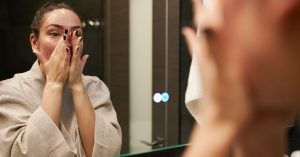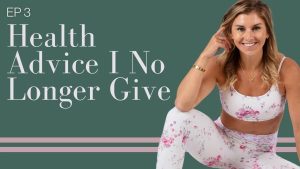Take Care: There’s More to Medical Ethics Than Absence of Harm
There’s a widely held belief that a doctor’s primary ethical obligation is to “do no harm.” The “no harm” principle, taught to all health care professionals, is important and meaningful, but it’s only part of a bigger ethical obligation we medical professionals have. That is, simply put, to take care of people. That duty of care is an important and useful guidepost in the increasingly complex world of medical ethics. Medical professionals have an ethical duty to relieve suffering, and to save and prolong lives. But today, as technological advances provide an almost unlimited ability to prolong lives, we also have an ethical duty to focus on the quality of life from the perspective of the person whose life it is. From that perspective, by listening

There’s a widely held belief that a doctor’s primary ethical obligation is to “do no harm.” The “no harm” principle, taught to all health care professionals, is important and meaningful, but it’s only part of a bigger ethical obligation we medical professionals have. That is, simply put, to take care of people.
That duty of care is an important and useful guidepost in the increasingly complex world of medical ethics. Medical professionals have an ethical duty to relieve suffering, and to save and prolong lives. But today, as technological advances provide an almost unlimited ability to prolong lives, we also have an ethical duty to focus on the quality of life from the perspective of the person whose life it is.
From that perspective, by listening to our patients and really hearing them, we can address most of the increasing complex ethical issues in health care. There will be conflicting ethical views and rarely a universally acceptable answer to everything, but we always have a guide in our duty of care.
With our aging population, one of the greatest areas of possible ethical conflict is in end-of-life care. How much treatment is too much? Whose wishes count? How do you allocate resources? How much information do you share, and with whom? How do you balance a patient’s right to know with the risk of extinguishing hope when the prognosis is grim? How do you address a patient’s right to die with dignity? What about conflicts among family members, or beween family members and the health care team? Who gets to decide? What is the right thing to do?
You start by remembering who your patient is. That is the person to whom you owe a duty of care. Listen to your patient and make the distinction between their wishes and the wishes of others. When your patient no longer has decision-making capacity, you still need to remember your duty is to them. Patients are not their family members, who may understandably be driven by their own beliefs and emotions.
Another area of potential ethical dilemma, especially in cases with extremely poor prognoses, is your patient’s right to know? What is your duty to disclose?
The doctor’s ethical duty of care is to alleviate suffering. Part of that is managing pain, but for some patients, the knowledge of their imminent death might cause great emotional distress. Therefore, the ethical behavior is not necessarily aggressive disclosure. The thoughtful, ethical doctor gives his or her patient the opportunity to ask, even asking directly: “Do you want to discuss your prognosis?” If the patient says no, vacillates or doesn’t ever ask, that may be a situation in which the patient is clinging to the tiniest hope. Is there ever a “right time” to extinguish that hope so the doctor can meet his or her need to be honest: it depends on the case.
Related to a patient’s right to know, it is also important to remember that, as with all rights, there is a corresponding responsibility. One of our jobs in ethics is to recognize that one can’t claim a right without saying whose is responsible for fulfilling that. Patients’ rights are important, and they also have responsibilities.
Beyond end-of-life issues, the landscape of ethical issues is vast and complex. There are many ethical conflicts related to reproductive issues: birth control, abortion, and technologically assisted reproduction including recent uterus transplants. Frankly, there aren’t always black-or-white answers.
Patients are entitled to medical care that is consistent with the law and their own personal integrity. Doctors must take care not to impose their own personal beliefs on their patients, with some exceptions. A good ethical consultation can often help identify the difference between medical ethics and personal ethics. That could mean that sometimes in an emergency situation, a health care professional with a set of personal ethical standards may need to compromise in order to meet the standard of medical ethics – our obligation to take care of the patient.
The other side of that coin is that in non-emergency situations, physicians should not be forced to provide medical services in contradiction to their personal beliefs. At the same time, a doctor should not push their personal beliefs on a patient. In a situation where a patient is looking for care that a doctor is not comfortable providing for personal — not medical — reasons, the doctor should respectfully disclose their decision to decline service in a non-judgmental fashion. When and if appropriate the doctor should offer alternative approaches or provide information on where a patient can obtain the requested service.
These are just a few of the potential ethical issues health care professionals may face, and the landscape is changing all the time. The good news is that ethics training is part of every medical school’s curriculum. The challenge is that in many cases it is taught in an isolated, theoretical manner. The growing field of clinical ethics consultation can provide an important practical resource for health care professionals, patients and families.
Ultimately it comes down to a doctor or other practitioner standing with a patient, making decisions that are very personal. In that moment, as conflicted and complex as the issues are, doctors can help by asking themselves a personal question: What do I need to do to take care of this person before me?
It’s an imperfect test but the answer is sure to be grounded in human need and empathy, and that’s where we find our most ethical behavior.
— This feed and its contents are the property of The Huffington Post, and use is subject to our terms. It may be used for personal consumption, but may not be distributed on a website.
SOURCE: Healthy Living – The Huffington Post – Read entire story here.








